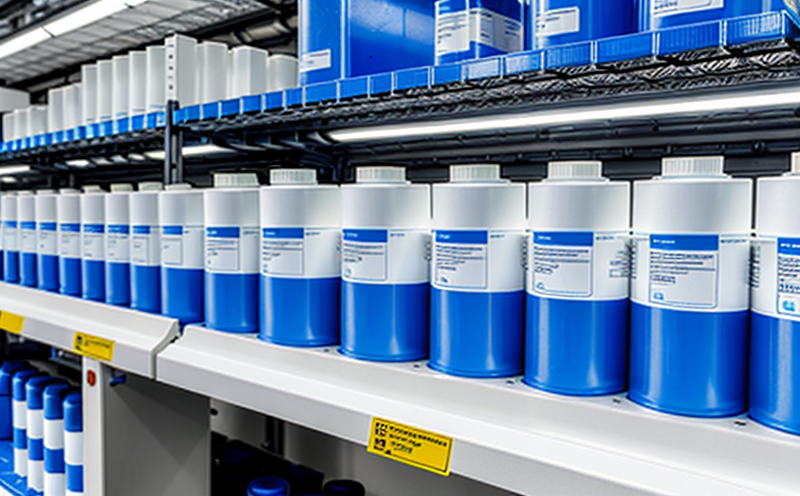Testing the migration of inks, adhesives, and other non-packaging components into pharmaceutical products
Ensuring Product Integrity Testing the Migration of Inks, Adhesives, and Other Non-Packaging Components into Pharmaceutical Products
As a pharmaceutical manufacturer, you understand the importance of ensuring your products meet the highest standards of quality and safety. One critical aspect to consider is the potential migration of non-packaging components, such as inks, adhesives, and other materials, into your final product. This phenomenon can have serious consequences for patient health and your companys reputation.
Eurolab offers a comprehensive laboratory service designed to test the migration of these components, providing you with valuable insights to enhance product integrity and protect your brand.
What is Testing the Migration of Inks, Adhesives, and Other Non-Packaging Components into Pharmaceutical Products?
Testing the migration of inks, adhesives, and other non-packaging components into pharmaceutical products involves evaluating the potential transfer of these materials from packaging or labeling materials into the final product. This process can occur through various mechanisms, including
Adsorption The absorption of molecules onto the surface of packaging materials.
Absorption The penetration of molecules into the packaging material.
Leaching The release of molecules from the packaging material into the product.
Understanding the migration behavior of these components is crucial for ensuring that your products meet regulatory requirements and maintain their intended efficacy and safety profile.
Why is Testing the Migration of Inks, Adhesives, and Other Non-Packaging Components into Pharmaceutical Products Essential?
The consequences of non-compliance can be severe, including
Regulatory fines and penalties
Product recalls and loss of market share
Damage to your companys reputation and brand image
By partnering with Eurolab for testing services, you can
Enhance product safety and efficacy Identify potential issues before they impact patients or the marketplace.
Comply with regulatory requirements Stay ahead of changing regulations and industry standards.
Maintain your companys reputation Protect your brand image by ensuring compliance and quality.
Benefits of Using Eurolab for Testing Services
Here are some key benefits you can expect from working with Eurolab
State-of-the-art facilities and equipment Our laboratory is equipped with the latest technology to ensure accurate and reliable results.
Experienced and dedicated team Our experts have extensive knowledge in testing and analysis, ensuring that your samples receive the best possible care.
Comprehensive testing services We offer a range of tests designed to evaluate various aspects of product migration, including extraction, adsorption, and leaching.
Customized testing packages Tailor our services to meet your specific needs and budget.
Frequently Asked Questions
Q What types of products do you test?
A We specialize in testing pharmaceutical products, but can also accommodate other related industries such as cosmetics and food.
Q How long does the testing process take?
A The length of time required for testing varies depending on the type and complexity of the product. Typically, we can provide results within 1-3 weeks.
Q Can I request a customized testing package?
A Yes! Our experts will work with you to design a tailored testing plan that meets your specific needs and budget.
Conclusion
Eurolab is committed to helping pharmaceutical manufacturers like yours ensure the highest standards of product quality and safety. By partnering with us for testing services, you can rest assured that your products meet regulatory requirements and maintain their intended efficacy and safety profile.
-
Testing the migration of substances from packaging materials into pharmaceutical products
-
Assessing the risk of chemical migration from packaging components into drug formulations
-
Simulating the migration of plasticizers, monomers, or other residual substances into the product
-
Evaluating the effect of time, temperature, and humidity on migration levels in packaging materials
-
Testing for the migration of moisture or gases from packaging materials into sensitive drug products
-
Simulating the effect of migration on the stability and safety of pharmaceutical products
-
Assessing migration rates of harmful substances from packaging over long-term storage periods
-
Testing the potential for migration of chemicals from packaging materials during transportation
-
Evaluating the safety of packaging materials based on migration study results and regulatory standards
-
Testing for migration from specific packaging materials like plastics, glass, or aluminum
-
Simulating migration scenarios under different environmental conditions (e.g., heat, light, moisture) to assess packaging performance
-
Testing for migration levels in packaging materials used for both solid and liquid pharmaceutical products
-
Assessing migration potential through accelerated testing techniques and long-term storage simulations
-
Testing migration in different pharmaceutical packaging systems, such as blister packs or bottles
-
Evaluating the effectiveness of barrier materials in preventing the migration of substances from packaging
-
Simulating the effect of migration on the shelf life and quality of pharmaceutical products
-
Assessing the migration of substances from packaging components into both active and inactive ingredients
-
Testing migration using specific regulatory methods to ensure compliance with pharmaceutical packaging standards
-
Evaluating migration under stress testing conditions like vibration, pressure, and impact during transport
-
Testing for the migration of volatile substances, including solvents and plasticizers, from packaging materials
-
Testing the migration of packaging materials in direct contact with sensitive pharmaceutical ingredients
-
Verifying packaging safety through comprehensive migration studies to meet industry regulations




